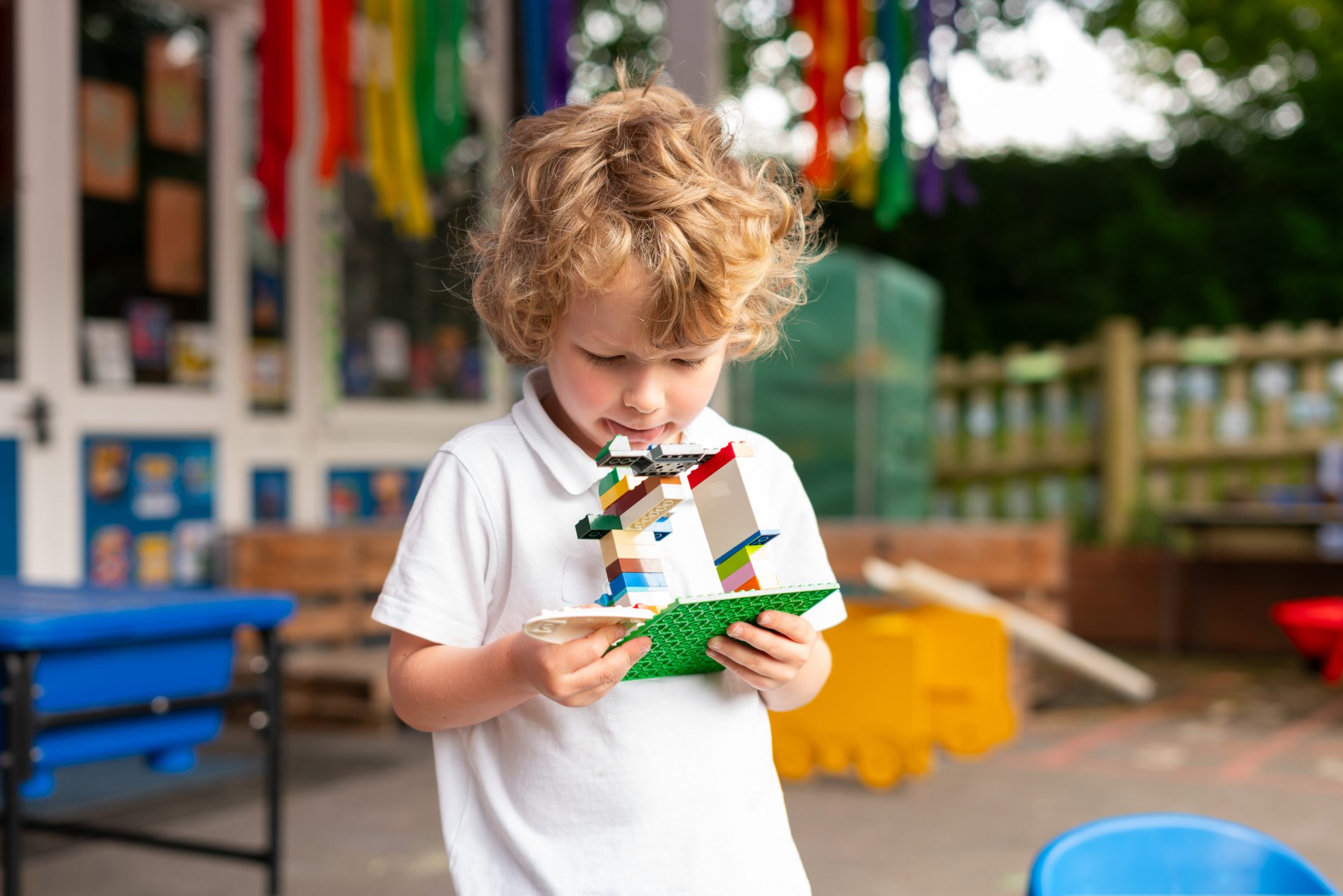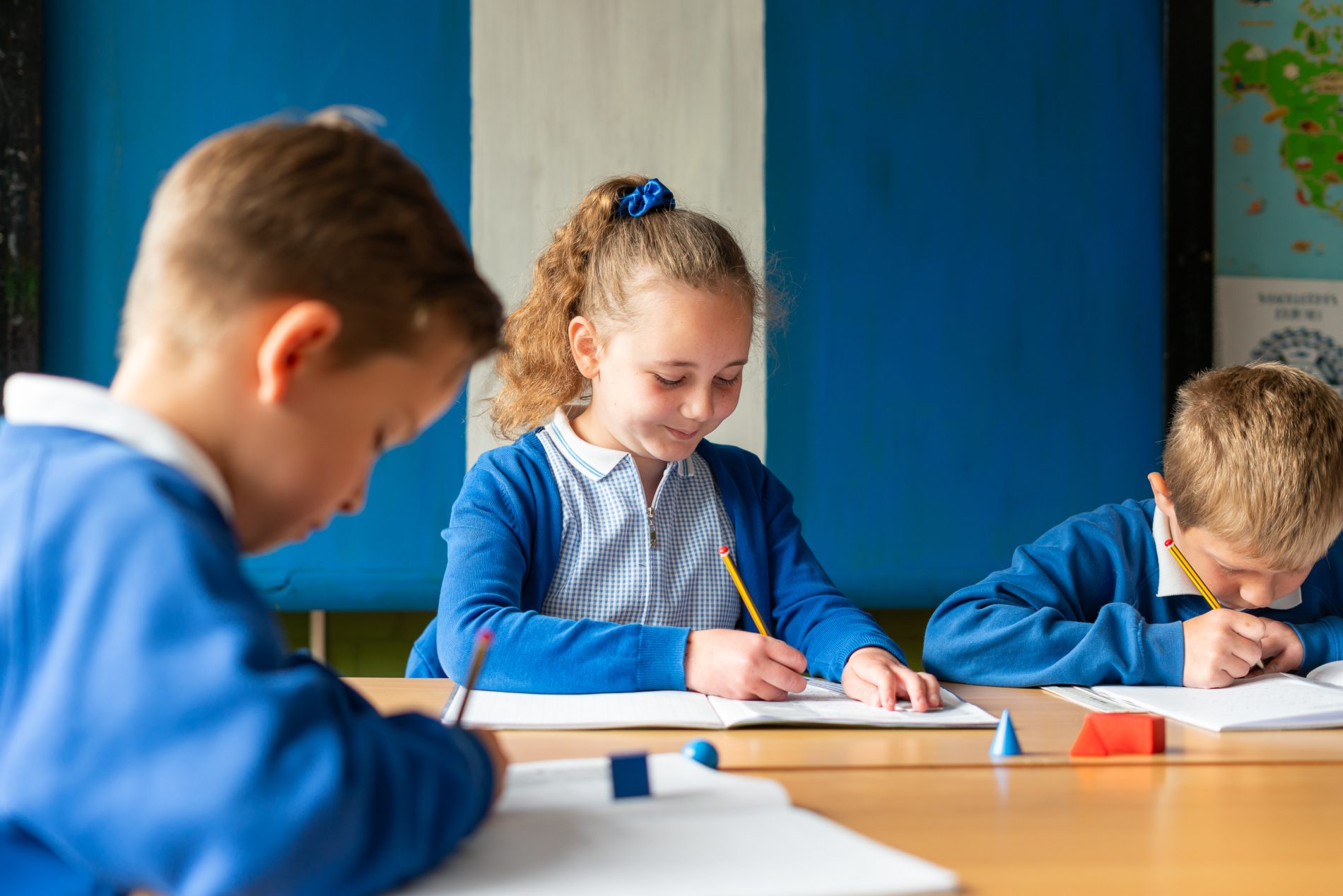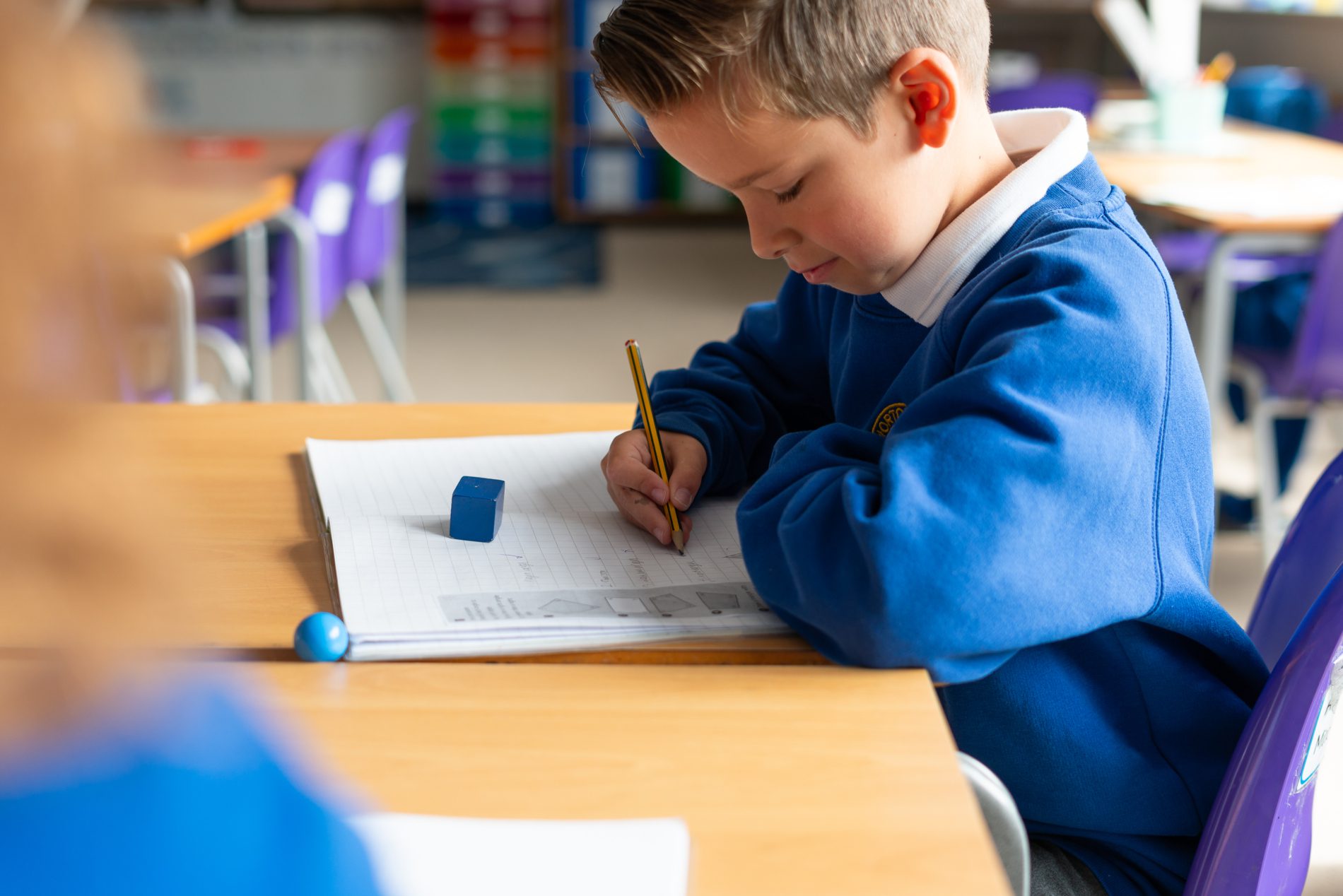Mathematics Subject Leader: Mr B Millbank
For any more information on Horton Kirby’s Mathematics Curriculum, please contact the office.
Here at Horton Kirby, we use here and provide personalised support to all our pupils throughout their Mathematic lessons. Having a high-quality mathematics education is an essential part of everyday life and is crucial to providing a foundation for a child’s future.
Intent
At Horton Kirby CE Primary School, our Mathematics Curriculum is an aspirational one which enables all children to work with confidence and fluency so that they are ready to reason well, solve problems and use mathematics beyond their primary school years and throughout their lives. Maths learning and long-term memory is embedded through our curriculum with Mathematics ‘Big Ideas’, aspects and skills being re-visited frequently and built logically. We ensure that learning is supported and adapted for the diverse needs of the children at our school so that SEND children can fully access the Maths Curriculum, disadvantaged children have equal opportunities and children of all abilities are challenged so that they are confident in approaching any problem within the world around them.
We aim to ensure that through understanding the needs of our individual children, adaptive learning and delivering a stimulating, challenging curriculum, all pupils will be able to display the following: fluency with calculation recall and use of calculation methods; reasoning mathematically by finding links and making generalisations; solving problems by deciding how to break it into steps and apply the correct calculation or method.


Implementation
We teach maths to ensure there is full National Curriculum coverage where children are given opportunities to develop their reasoning, problem solving and fluency skills. The maths curriculum ensures progress by planning for effective questioning, differentiation, challenge and independent learning for all.
Pupils will develop crucial life skills such as working collaboratively and communicating confidently with both peers and adults within school. They will engage in the full coverage of the mathematics curriculum each year, ensuring that there is continuous progression of skills from EYFS up to Year 6. Pupils learn maths daily using schemes to ensure that national curriculum objectives are covered, and that children are fluent with arithmetic and calculation, but can use this to reason and problem solve. All units of work are taught with a reasoning and problem-solving element, once children are fluent with the calculation. Times Tables are taught daily and tested weekly, through the use of Times Table Rock Stars. Weekly Mental Arithmetic is given out as homework in Key Stage 2. Calculation methods are also tested weekly in Key Stage 2.
Impact
As a school, we teach maths for life, as part of cultural heritage and to begin to prepare children for life beyond school by considering the role of mathematics in their daily lives. Through developing maths skills children become better at thinking logically and analytically. Through solving problems, children develop curiosity, resilience and are able to think creatively and strategically. We want children to be able to leave primary school with the key skills, knowledge and understanding to be successful global citizens.

Mathematics in Each Stage
At EYFS, we focus on a variety of different skills to enable pupils to develop their knowledge of counting and understanding numbers, as well as exploring shapes, identifying patterns and solving addition/subtraction equations.
Click the link below to view our EYFS long-term plan:
In Key Stage 1, we adapt from skills learnt in EYFS to identify, compare and solve problems involving numbers, lengths and volume. Working individually and in groups helps pupils to learn to think about the methods for solving problems.
Click the link below to view our year 1 and year 2 long-term plans:
In KS2, pupils will become more confident with maths by adding, subtracting, dividing and multiplying as well as performing mental calculations and solving problems using time, measure and money. By the end of year six, pupils will be able to recite their timetables up to 12 x 12.
Click the link below to view our year 3 – 4 long-term plan, and year 5 – 6 long-term plan:
Year 3 Curriculum Year Overview
Year 4 Curriculum Year Overview
Mathematics Progression
At Horton Kirby, we develop our pupil’s Mathematics understanding through essential skills; growing their depth of knowledge year on year. Through the use of ‘end of year expectations’, we are able to monitor their progress and allocate extra support and adaptations to the curriculum for pupils to maintain a strong Mathematical education.
Assessments
In EYFS children are continuously assessed within Maths through teacher observations within day to day activities. Some children in EYFS may be set weekly Numbots homework which is completed online. In key stage 1, formative testing takes place for year 1 in term 2 and 6. Year 2’s formative assessments take place in term 2, 4 and 5. Year 1 will be set weekly Timestables Rockstars and/or Numbots homework online and some learners in year 1 may also be set weekly arithmetic homework as the school year progresses.
In Year 2, weekly arithmetic / varied fluency homework (linked to consolidating the curriculum work being covered in school) is set as well as weekly timetables via the Times Tables website.
In key stage 2, arithmetic and timetables are tested regularly within class. Testing takes place for year 3, 4 and 5 in term 2 & 6. Year 6’s assessments in Maths take place in terms 2, 3, 4 and 5. All of key stage 2 are set weekly arithmetic or fluency homework which links to the maths curriculum work being covered in school as well as weekly Timestable Rockstars homework.
SEND Information
We ensure that SEND and disadvantaged children are given the necessary support in class to fully access the Maths Curriculum and equal opportunities are given for all to be confident in approaching any problem within the world around them.
Mathematics Extra Resources
Further Mathematics Help
Fun Mathematics Games

